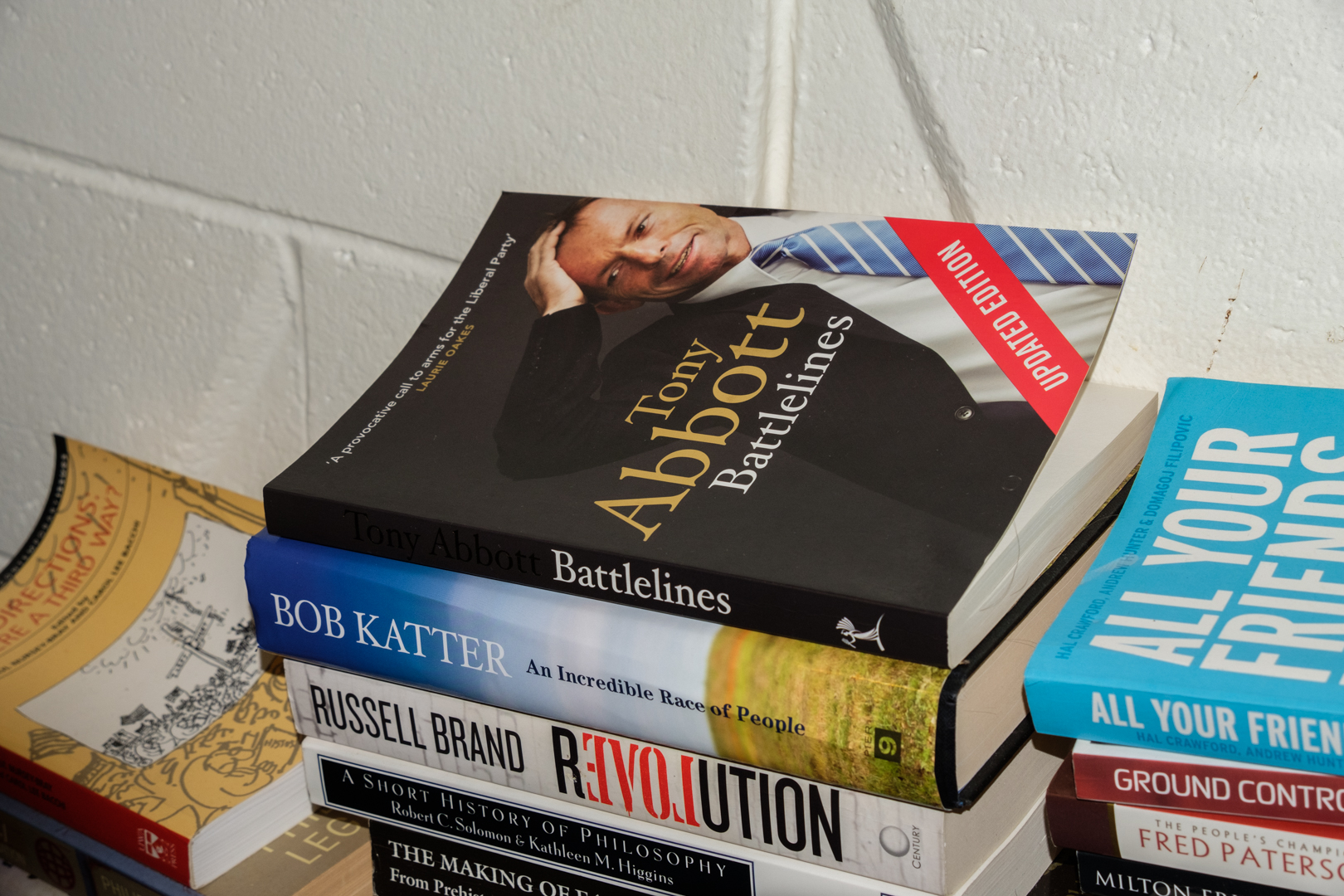In the classic form of capitalism, companies competed to sell their products to customers with the aim of producing profits to fuel further expansion. Today, companies no longer need to make profits in order to command massive valuations – Elon Musk‘s Tesla is worth $US 48 billion despite accelerating losses to $2B last year. Making money is no longer a prerequisite for business success. Instead, these companies serve as stock market vehicles, catering to the whims of investors rather than customers. This serves to remove any measure of control ordinary people might have been able to impose upon corporations through their choices in the market.
Blog
-
Indentured Servitude
Back in the bad old days of slavery and serfdom, there was a class of people who weren’t quite slaves, but weren’t free either. These indentured servants were tied by contract to serve a particular master as slaves, but only for a specified period (typically 3-7 years). Folks who were desperate for passage to the Americas or who had accumulated debts beyond their ability to pay would sell themselves into virtual slavery with the hope of a better life after their period of bondage ended. South Sea Islanders were coerced into similar contracts to labour in Queensland in the late 1800s, long after such arrangements were outlawed for white folks. But were they actually outlawed, or just transferred into another form?
The Employee does hereby agree to faithfully serve the Company for three years from the date of his landing in the land of Virginia, there to be employed in the lawful and reasonable works and labors of the Company and their executives, and to be obedient to such managers as the Company shall from time to time appoint and set over him.
– From the indentured servitude contract of Robert Coopy, 1619, edited to modernise
The life of an indentured servant was nasty, brutish and short. Despite the incentives present at the end of their contract (the transfer of land and often supplies for a year), these folks had no freedom, being tied to the whims and punishments of their masters. It may have been a better life than that of a slave (who gradually replaced them in the 1700s), but indentured servants were forced to work from dawn to dusk and could be sold between masters like commodities.
Whilst employed by the Company, the Employee must devote his or her whole time and attention to the business of the Company as required and must not, without the prior consent of the Company, engage in any other activity or employment.
The owner had complete control of a servant’s life and the backing of the state to ensure compliance against any runaways. Servants internalised the virtues of the Protestant work ethic to justify their own bondage, but masters also provided plenty of extrinsic motivation through harsh discipline.
The Company may use surveillance personnel in strategically located internal and external areas of the plantation to monitor movements. Guards will operate continuously and surveillance will be ongoing.
Under this strict surveillance, servants toiled from dusk until dawn for the benefit of their owners. Everything that a servant created would be the property of their owners, as was the servant themselves. The ultimate alienation.
The Employee acknowledges and agrees that the Company is the sole and exclusive owner of all rights including without limitation copyright throughout the world and all journalistic, literary and artistic work created, conceived, developed or acquired, in whole or in part, by the Employee, in the course of the Employee’s employment with the Company, however and whenever created or conceived, whether solely or jointly with others and whether during work hours or otherwise.
Even once freed, indentured servants often found that their supposed rewards were dependent on the whims of their owners. Their parcels of land might be subject to extortionate rents, the supplies provided were often minimal, and their low status and injuries suffered during their servitude restricted their opportunities.
For the duration of the Employee’s employment with the Company and for 6 months thereafter, the Employee must not on his or her own account, or on behalf of any other person in whatever capacity (without the prior written consent of the Company in its absolute discretion) participate in any business similar to the business of the Company or any Related Company.
But apart from our dear friend Robert Coopy up the top, these quotes are not from the contracts of indentured servants. They are from an employment contract which crossed my desk today (and have been lightly edited so as not to give the trick away with modern boondoggles). I am to be paid much better than poor Robert was for my services, but the conditions of servitude never went away.
A forcing-up of wages would therefore be nothing but better payment for the slave, and would not conquer either for the worker or their labour their human status and dignity.
– Karl Marx, The Economic and Philosophic Manuscripts of 1844
Whether I sell myself for a million dollars or a loaf of bread, I am still selling myself. A modern salaried worker has no right to an 8 hour day, no right to the fruits of their own labour, limited rights even to sell their services elsewhere. No doubt we have better material conditions than the indentured servants of the 1600s, but on a philosophical level the conditions remain the same. The employing class still own the working class. Our labour is not ours. The products of our labour are not ours. We are not ours.
-

Gallery: Sydney by Smartphone
I spent the weekend in Sydney without a proper camera or tripod. So here’s what I could make do with my phone.
-

Book Nook – Battlelines by Tony Abbott
Tony Abbott is not a smart man. Beneath the thin veneer of political savvy lies a man whose politics are solely derivative of an enormous ego. Tony personally identifies with conservative institutions like the monarchy, family and church, and so his inability to perform any kind of self-reflection extends to these as well. This is a man born in privilege whose greatest challenge in life was when the media once scrutinised him and who claims that being a politician is as hard as a soldier. A man who has been handed every job he’s ever had by an old boys network, yet asserts that folks on disability pensions need more incentive to work. The 28th Prime Minister of Australia.
(more…) -

Gallery: Gardens & Autumn
A set of photos from the National Botanic Gardens and surrounds. Autumn is a bit slow coming!
-
The Debt and Austerity Narrative
Four years ago, the Liberal government assured us that hard budgetary cuts were required to tame a “debt and deficit disaster“. Since then, that same government has increased our net debt by more than 55%, or $129 billion. When tonight’s budget is released, Treasurer Scott Morrison is expected to find money for tax cuts, both for personal incomes and to fund the corporate tax cuts for the big businesses which have yet to pass through the Senate, while the budget remains in deficit. The Medicare levy increase which was to fund the NDIS has been scrapped. If our national debt is such a crisis, then how can we afford such cuts to revenue?
Conservatives the world over have found success through a reputation for responsible economic management. US Republican Speaker Paul Ryan forged a reputation as a proud fiscal wonk, urging difficult choices and cuts to spending in order to tackle America’s debt. Yet once his party swept into office, he enthusiastically supported President Trump’s trillion dollar tax cuts, blowing a hole in the deficit and condemning government debts to grow even further. In the Eurozone, severe cuts to public services have been justified by a demand for austerity in the face of rising national debts, yet this has been accompanied by cuts to corporate taxes. Across the globe, this concern for national debts only ever seems to translate to cuts to public services, not any other budgetary options. This is not by coincidence, but by design.
The fear of debt is a powerful motivator for citizens, with numbers beyond their comprehension and an implicit intergenerational unfairness. This fear has been captured and amplified by conservative politicians in service of their ideology. Paul Ryan is a follower of Ayn Rand, and her sociopathic vision of society run by and for business. He doesn’t actually care about reducing the national debt, as his actions have shown. He cares about reducing the role of government and increasing that of private enterprise.
For those who want to eliminate public services, the idea that the government is spending too much is a potent one. Cuts to any and every program can be justified if we run the risk of credit default. But these cuts do tend to decrease government spending (even if they can sometimes be outsourced directly to the private sector instead), which risks ruining the narrative. If the government has enough money, then the plebs might demand it be spent on public services, which remain resolutely popular. So as cuts are made to services, they must also be made to government revenues through tax cuts, concessions and business handouts to make sure that the budget is in a permanent state of crisis.
Though our government has no ideologues of the Paul Ryan level, the paucity of ideas developed within our Liberal Party meant that eventually these American strategies would be employed here. Our conservatives may be egotistical morons, but they can see how well the politics of austerity have worked to cut public services and to justify tax cuts to their corporate mates, both in the US and Europe. So with more money found within the budget, it must be cut from revenues lest it risk ruining the crisis narrative.
With an election looming and polling remaining in favour of the opposition, the Liberal Party have flagged a specified maximum tax to GDP ratio of 23.9%. This would tie the hands of any incoming government, ensuring deficits and running up Australia’s debts to the higher levels seen in other developed countries. It is a very savvy political move which could enshrine the debt austerity narrative for a generation as our population ages and requires more spending on health and pensions.
While I expect this obfuscation from the conservative side of politics, the Labor Party’s response demonstrates again how they have been swept away by the narratives of neoliberalism. Shadow Treasurer Chris Bowen could have used the money which has been found in the budget to support an increase in the criminally low Newstart benefit, as his party members have been agitating for. With more money flowing into the economy from those who spend every cent they get, growth and inflation would increase, improving the budget position as a side effect of good policy, not a goal. But instead, Labor has bought into the debt austerity narrative, demanding that the government be more fiscally conservative and ensure bigger surpluses, sooner.
The national budget is not like a household budget. A government which prints its own currency and can set its own taxes upon its own economy cannot be run the same way as a household with simple income and expenses. This is not to say that debt is entirely unimportant, but simply that there are far more policy options available than simply running surpluses in order to reduce debts. Between the end of WW2 and the end of the Callaghan Labour government in 1979, British public debt dropped from 250% of GDP to less than 50% through growth and inflation, despite running deficits in most years.
Austerity is a choice, not an economic necessity.
-
Self-Commodification
In our market society, every thing is transformed into a commodity to be bought and sold. Buyers and sellers meet to trade not only petrol, but also fine art and literature. We also sell ourselves on the market, renting out our lives to employers. In our current epoch these commodities are not just sold, but actively moulded to better suit the demands of the market. Not only do brewers adjust their formulations based on sales, but we shape ourselves to better fit our perceptions of what the market demands.
Who are you? You are your self – the central tenets of your own identity. But your self is not set in stone, it is shaped by your choices and experiences. You aren’t the same person you were at age 18.
There are some aspects of your self that you share freely with the world and others which you keep close to your chest. This is normal, humans are naturally duplicitous creatures. The self you show to the world exerts a pressure on your core self, refining your values and choices through reflection. In the age of social media, our selves have been opened up to the world in unprecedented ways. Every post, every interaction is subject to public scrutiny. This scrutiny is not just from our peers, but also from the myriad of market actors which can have profound impacts upon our lives.
On social media or in life, every interaction may be the start of a path to that elusive good job. Advertising your capabilities as a worker could lead to that opportunity, but conversely displaying unsuitable traits may freeze you out. So a pressure is exerted on what you say, the company you keep and the activities you undertake. Do you attend the gig or the seminar; talk about work or politics? The invisible hand of the market directs you towards those activities which enhance your personal brand and thus market value.
Your work doesn’t finish when you leave the office, but instead becomes a filter through which you mediate your life. You worry about whether a particular education makes you employable, about whether a gap in your resume will prove insurmountable. Instead of drinking with friends, you network with professional colleagues.
Your performed self is alienated from your actual self, driven by the need to hustle for every opportunity and avoid anything which might cast you in a negative light next time you make an application. As you continue to perform, your internal self moves away from that actual model, warped by the demands of the market. In this grim late capitalist world, your self is increasingly concerned with maximising its worth to employers rather than with self-actualisation.
By this point, you have completed the transition from person to commodity. You are no longer defined by your individual character or values, but instead are simply interchangable wage labour, another bottle of cola trying to appeal to a customer with snazzy branding or a low price. What is LinkedIn but a human supermarket where recruiters can choose among millions of wage labourers?
In the Soviet supermarket, there were only two kinds of worker available, peasants and bureaucrats moulded by the police state. In the neoliberal supermarket, there exists a rainbow of worker brands. But they all taste the same, all shaped by the market towards a kind of dull positivity and competence with spreadsheets.
The power of the market is in shaping people and their actions with incentives rather than gulags. The prospect of material riches is a powerful motivator. The market does not force you, but rather encourages you to turn yourself into a commodity. But you do not have to accept this. Even without abolishing markets, a skilled worker can still hold true to their values.








